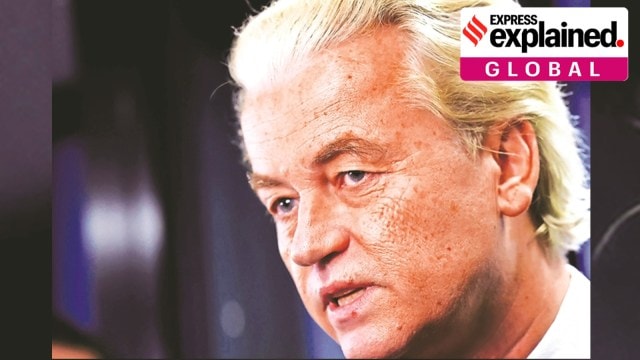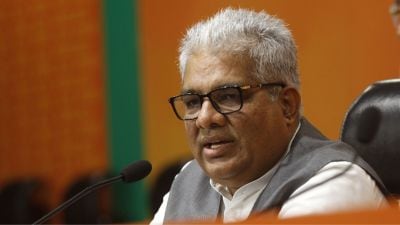What the new right-wing Dutch government plans to do on immigration and more
The coalition aims to expand offshore natural gas extraction and nuclear energy production as part of plans to reduce the Netherlands’ dependence on “unreliable countries”
 Geert Wilders will not become prime minister himself. (Image source: Reuters)
Geert Wilders will not become prime minister himself. (Image source: Reuters) After months of negotiations, Dutch ultranationalist Geert Wilders and his coalition partners have struck a deal to form the government. Here is what they plan to do.
On immigration
The coalition aims to have the strictest admittance policy for asylum seekers in EU, and will request an opt-out of common EU rules for migration. Foreigners who have already been denied asylum in another EU country will be sent away immediately, family reunifications will be limited, and refugees and asylum seekers will no longer be prioritised for housing. Within EU, the government will strive for stricter border controls and deals with non-EU countries to take in migrants.
Labour migration will be curbed, as will the flow of foreign students to Dutch universities. Workers from outside the EU who do not have specific expertise will need work permits, and recruiting agencies will face stricter regulation.
On energy
The coalition aims to expand offshore natural gas extraction and nuclear energy production as part of plans to reduce the Netherlands’ dependence on “unreliable countries”.
It will stick to internationally agreed climate goals, but will not add any national restrictions on top of them. Plans under the previous government for an additional national carbon emissions tax for industry will be scrapped.
On agriculture, environment
Farmers won’t be forced to reduce their livestock, a move by the previous regime to cut back nitrogen oxide emissions. The coalition will strive to ease EU environmental regulations for farmers, and domestic regulations will not be made stricter than what EU laws prescribe. Diesel for farmers will become cheaper, and the maximum speed on highways will be increased to 130 kmph after being reduced to 100 kmph in 2020 to fight nitrogen pollution.
On taxes, spending cuts
Energy and income taxes will be lowered, while levies on share buybacks by listed companies, announced late last year, will be scrapped. A mandatory user contribution for healthcare procedures will be halved by 2027, and childcare subsidies will be increased.
Day care will be made nearly free. Plans will be financed with14 billion euros in spending cuts through 2028, including through a freeze of government salaries. Unemployment welfare will be limited to 18 months.
International stance
Political and military support to Ukraine will be sustained, and the coalition will make it legally binding to spend at least 2% of Dutch gross domestic product on defence, in line with NATO agreements. Spending on foreign development aid will be cut by 2.4 bln euros. EU enlargement will not be supported unless all relevant criteria are fulfilled. The coalition aims to move the Dutch embassy in Israel to Jerusalem.
Reuters
- 01
- 02
- 03
- 04
- 05






































